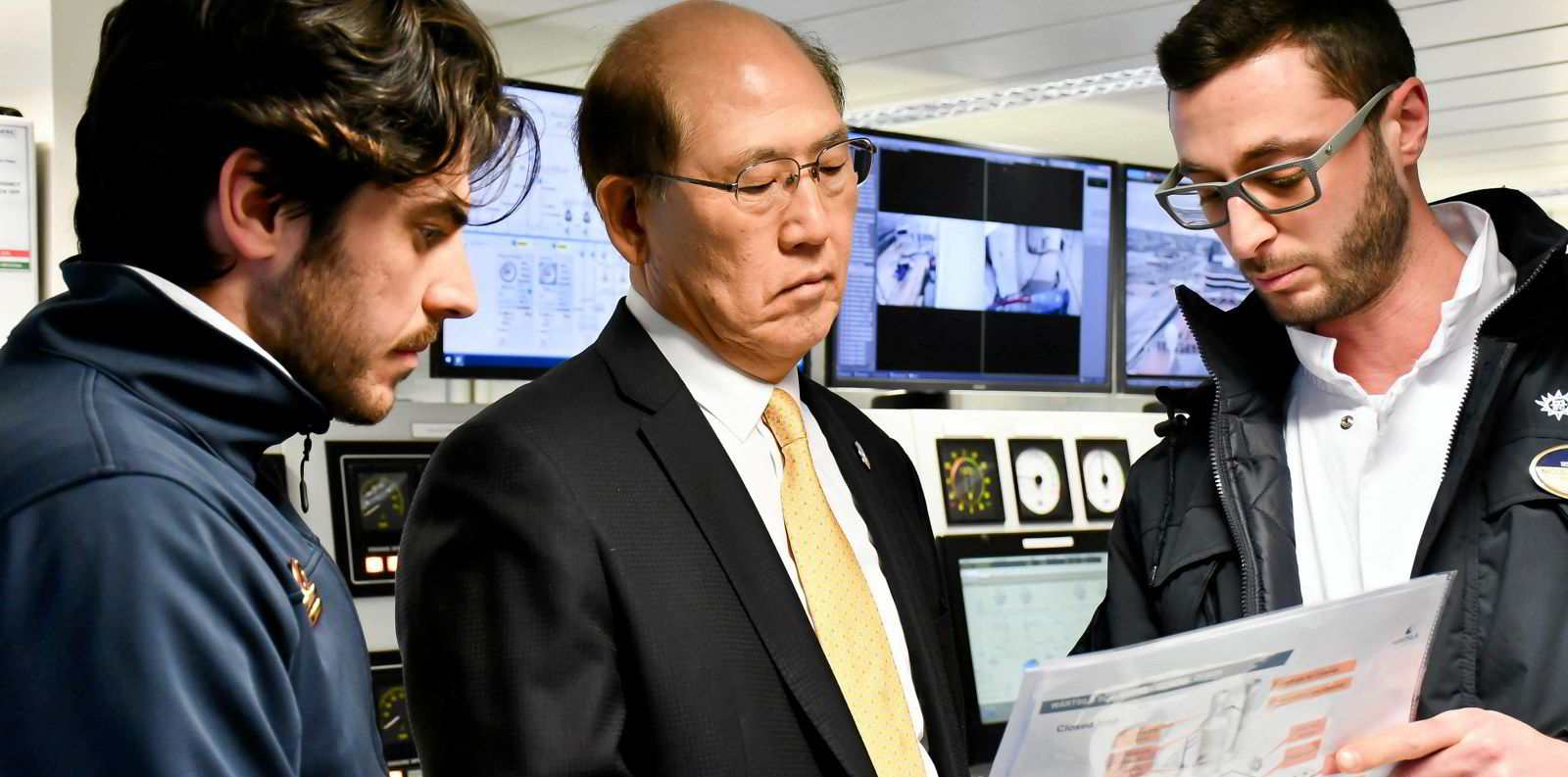We’re all in agreement that international shipping’s over-reliance on fossil fuels has to change.
There’s even a consensus that, in addition to the increased use of wind, the sector will need to adopt alternative fuels such as ammonia, hydrogen and methanol to significantly reduce greenhouse gas emissions.

But switching to fuels like this isn’t straightforward. A ship could switch to methanol produced using biomass from a destroyed rainforest or hydrogen produced from fossil gas and could end up having a larger impact on the climate than the fuels it replaced.
Alternative fuels are no silver bullet — they will only bring a climate benefit if they are produced in a sustainable way.
This is why any regulation of international shipping which encourages the sector to switch fuels must look at the full life cycle of the fuels.
If the regulation only considers the emissions on the ship, it will not drive the investment signal that the sector desperately needs to ensure the right fuels are produced.
Unfortunately, the International Maritime Organization — shipping’s global regulator — doesn’t seem to understand this.
There are countries in the IMO suggesting that not only should it just regulate the emissions from on board the ship, but also that the IMO doesn’t have the legal ability to regulate the emissions from the full life cycle of the fuel.
But Opportunity Green’s new report, The IMO’s Legal Remit on Upstream Fuel Emissions, details how the IMO does indeed have a legal remit to regulate emissions from the full shipping fuel life cycle and also busts the myth that there is any legal barrier in the IMO or Marpol conventions that would prevent this.
We found that the IMO can regulate the upstream emissions of all shipping fuels and that such regulation is consistent with IMO objectives and purposes. It is consistent with existing IMO practice on environmental regulation and fuels, and it is within the IMO’s competency. Crucially, there are no legal limits preventing this regulation.
The Convention of the IMO gave the organisation very broad objectives and all the powers the IMO needs to achieve those objectives. These objectives include the “prevention and control of marine pollution from ships”, in the very first Article of the Convention no less.
Similarly, the UN Convention on the Law of the Sea reinforces the powers of the IMO and specifically tasks the IMO with preventing, reducing and controlling pollution of the marine environment.
Beyond ships
The IMO has often stepped outside the very strict regulation of just ships — for example, it already regulates the sulphur content of fuels that shipping uses (or mandates ships must use a scrubber).
Treating the fuel to remove the sulphur content is an activity that takes place on land, and no one has blinked an eye to suggest it is outside the IMO’s remit. Regulating the emissions from the production of alternative fuels is no different.

I’ve been working to reduce the climate impact of international shipping for over 10 years. Countries that want to slow down regulation often make the same old argument on this topic: it can’t be done because it has never been done.
Arguments like this are at best, counter-productive and at worst, putting up barriers to meaningful climate solutions.
At Opportunity Green we believe lawyers are obligated to analyse the existing legal systems and regulations to stop climate change.
That’s why we use legal innovation to forge new pathways on climate action or where that is not possible, find pathways within the present legal structure to facilitate the legislation needed to slash carbon pollution.
Political will
Almost all countries in the world have signed up to the goals of the Paris Agreement but those goals will not be achieved unless shipping reduces its emissions. And yet, many governments continue to operate as if this didn’t apply to them or to the shipping industry.
There are no meaningful restrictions on how the shipping sector can be regulated by the IMO, nor indeed by national governments.
All that is missing is the political will. To encourage the shipping industry to move to alternative fuels without taking into account the full climate impact of those fuels would be nothing less than reckless.
The IMO has the power to ensure all emissions from shipping fuels are considered and reduced, all that is needed now is for countries to ensure this is done.
Aoife O’Leary is the chief executive of Opportunity
Green, an NGO working to unlock the opportunities
from tackling climate change using law,
economics and policy
Do you have an opinion to share?
Email: news@tradewindsnews.com




